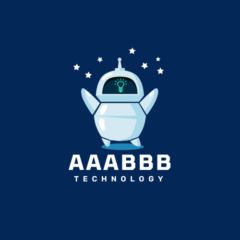Artificial intelligence (AI) is rapidly evolving, reshaping industries, and influencing every aspect of human life. From healthcare to education, AI is becoming a cornerstone of technological advancement. This article explores the future of AI, its potential impact, and the challenges it presents.
The Evolution of AI
Understanding AI’s Growth
AI has come a long way since its inception in the 1950s. Today, it powers everything from virtual assistants to autonomous vehicles. The advancements in machine learning (ML) and natural language processing (NLP) have made AI more accessible and powerful than ever before.
Key Milestones
- 2016: Google’s AlphaGo defeats a world champion at the game of Go.
- 2020: AI models like GPT-3 demonstrate human-like text generation capabilities.
- 2024: AI adoption in healthcare and education is expected to grow exponentially.
The Impact of AI on Industries
Healthcare
AI is revolutionizing healthcare by improving diagnostics, personalizing treatments, and streamlining operations. For instance, AI-powered tools can analyze medical images with high accuracy, reducing human error. According to a report by McKinsey & Company, AI has the potential to save $150 billion annually in the US healthcare sector.
Business and Automation
AI is transforming business operations by automating tasks, optimizing supply chains, and enhancing customer experiences. Chatbots powered by NLP are increasingly being used to provide 24/7 customer support. Companies like Amazon and Netflix use AI to recommend products and content tailored to individual preferences.
The Future of AI in Education
AI is reshaping education by making learning more personalized and accessible. Adaptive learning platforms use AI to identify students’ strengths and weaknesses, providing customized lesson plans. Additionally, virtual classrooms powered by AI can connect students with teachers worldwide, breaking down geographical barriers.
Ethical Considerations and Governance
The Need for Regulation
As AI becomes more integrated into society, ethical concerns such as bias, privacy, and job displacement arise. For example, facial recognition technology has been criticized for its potential to perpetuate racial biases. Governments and organizations must establish clear guidelines to ensure AI is used responsibly.
Collaborative Efforts
Global initiatives like the OECD AI Principles aim to promote ethical AI development and deployment. Collaboration between policymakers, tech companies, and researchers is essential to address these challenges effectively.
The Role of Humans in an AI-Driven World
Enhancing Human Potential
AI is not a replacement for human workers but rather a tool to enhance productivity and creativity. By automating repetitive tasks, AI allows humans to focus on more meaningful work that requires emotional intelligence and critical thinking.
Upskilling and Reskilling
To thrive in an AI-driven economy, individuals must continuously upskill and reskill. Governments and organizations should invest in education programs that prepare the workforce for future challenges.
Conclusion
The future of AI is bright but comes with its share of challenges. As we continue to harness the power of AI, it is crucial to prioritize ethical considerations, ensure equitable access, and foster collaboration between stakeholders. By doing so, we can unlock AI’s full potential and create a better world for all.
FAQ: Key Questions About AI
What are the key trends in AI?
- Increased adoption of generative AI (e.g., GPT-4).
- Expansion of AI in healthcare and education.
- Growing focus on ethical AI development.
How can individuals prepare for an AI-driven future?
- Embrace lifelong learning.
- Develop skills in critical thinking, creativity, and emotional intelligence.
- Stay informed about AI trends and their implications.
Key Takeaways
- 2023: The launch of advanced AI tools like ChatGPT marks a new era in AI development.
- 2024: AI adoption in healthcare is expected to grow by 50%.
- Future: Ethical governance and human-AI collaboration will be critical for sustainable progress.
By understanding these trends and challenges, we can navigate the future of AI with confidence and create a world where technology enhances human potential.

Leave a Reply